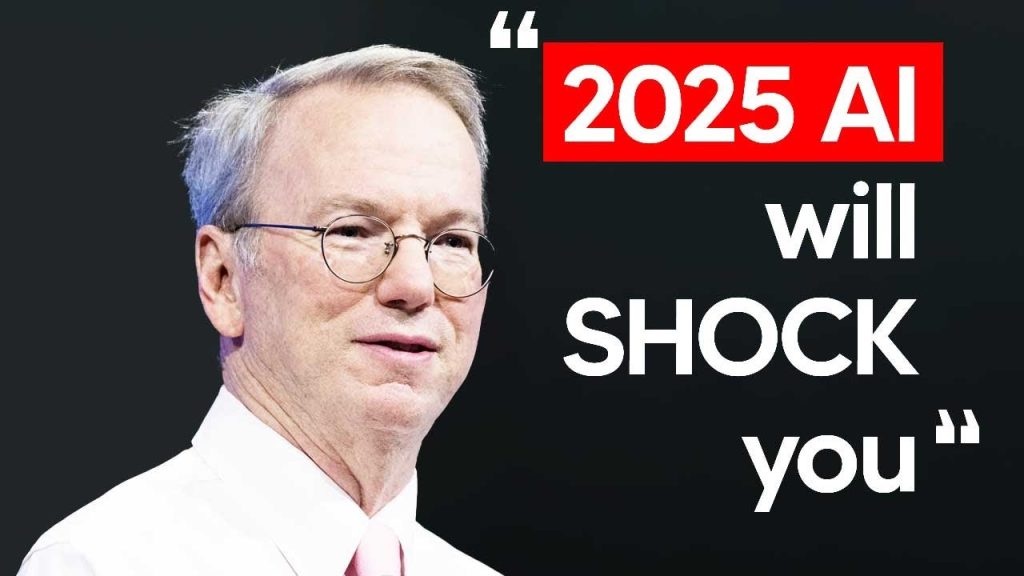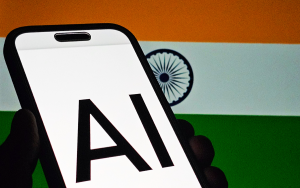The AI Revolution Unveiled A Peek into 2025

Get ready for a whirlwind of changes as AI gears up for a groundbreaking transformation in 2025. From longer context windows to AI agents taking charge, the future holds incredible promises. The former Google CEO, Eric Schmidt, hints at a digital evolution that could redefine technology as we know it.
In a lively discussion at Stanford, Schmidt dives into the world of AI, unraveling concepts that seem straight out of a sci-fi flick. With breakthroughs on the horizon, he paints a picture of a future teeming with infinite possibilities. Join us as we explore what 2025 has in store for AI enthusiasts.
The Dawn of Infinite Context Windows
AI’s ability to understand and remember context is about to leap forward. By 2025, infinite context windows could allow AI to hold on to past interactions and knowledge. Imagine an AI recalling every conversation, aiding meaningful relationships with users. This could track personal evolution and digest vast libraries of information effortlessly.
The Rise of AI Agents
Eric Schmidt sees a future where AI agents perform innovative tasks seamlessly. The development of LLM agents underscores a shift towards machines understanding and applying principles across fields like chemistry. By 2025, such agents could revolutionize industries, making once tedious tasks efficient and dynamic.
Infinite Context Windows Explained
These advancements hint at a reality where AI systems form long-term connections with users. They’ll track personal growth and handle massive datasets like entire code bases or libraries. If this comes to fruition, 2025 could mark a turning point, making AI systems indispensable.
Chain of Thought: Revolutionizing AI Reasoning
AI’s step-by-step reasoning could impact problem-solving in science and engineering. By breaking down tasks into manageable actions, AI might innovate solutions in medicine, materials, and even climate change. This potential makes the journey towards 2025 incredibly exciting, as AI evolves to tackle more significant challenges.
The Advent of Text to Action
The introduction of text to action in AI could democratize creation processes, making once intricate tasks accessible. This feature could change how we interact with technology daily. As AI matures, it might provide users with automated solutions, offering something akin to personal digital assistants far beyond today’s capabilities.
The Role of Autonomous AI in 2025
The potential of autonomous AI spans beyond coding. As these systems evolve, they might transform industries by performing tasks autonomously, only interacting with humans for essential feedback. These capabilities make 2025 a pivotal year for AI, potentially redefining operational efficiency across sectors.
AI: The Quiet Revolution
Schmidt’s perspective on AI as underhyped highlights a broader consensus on upcoming digital advancements. As systems grow smarter and more resourceful, they promise to reshape industries and daily life, possibly beyond current predictions. This evolving landscape underscores AI’s importance in future-proofing technological progress.
AI and recursive self-improvement
AI’s ability to self-improve could revolutionize its application scope, delivering advancements across science, security, and even societal infrastructures. If managed responsibly, this development could unlock incredible potential, signifying a pivotal shift in how AI contributes to global innovation and problem-solving.
The Unseen Impact of AI
The journey toward 2025 carries immense potential for AI’s role in society. With systems growing more capable, 2025 could usher in advancements that redefine the interplay between human endeavors and technological assistance, heralding new opportunities across various fields.
2025 looms as an exciting year for AI, brimming with potential transformations that could change how we interact with technology. As AI continues to progress, its impact on industries and daily life is bound to be profound, promising a future full of innovation and opportunities.







